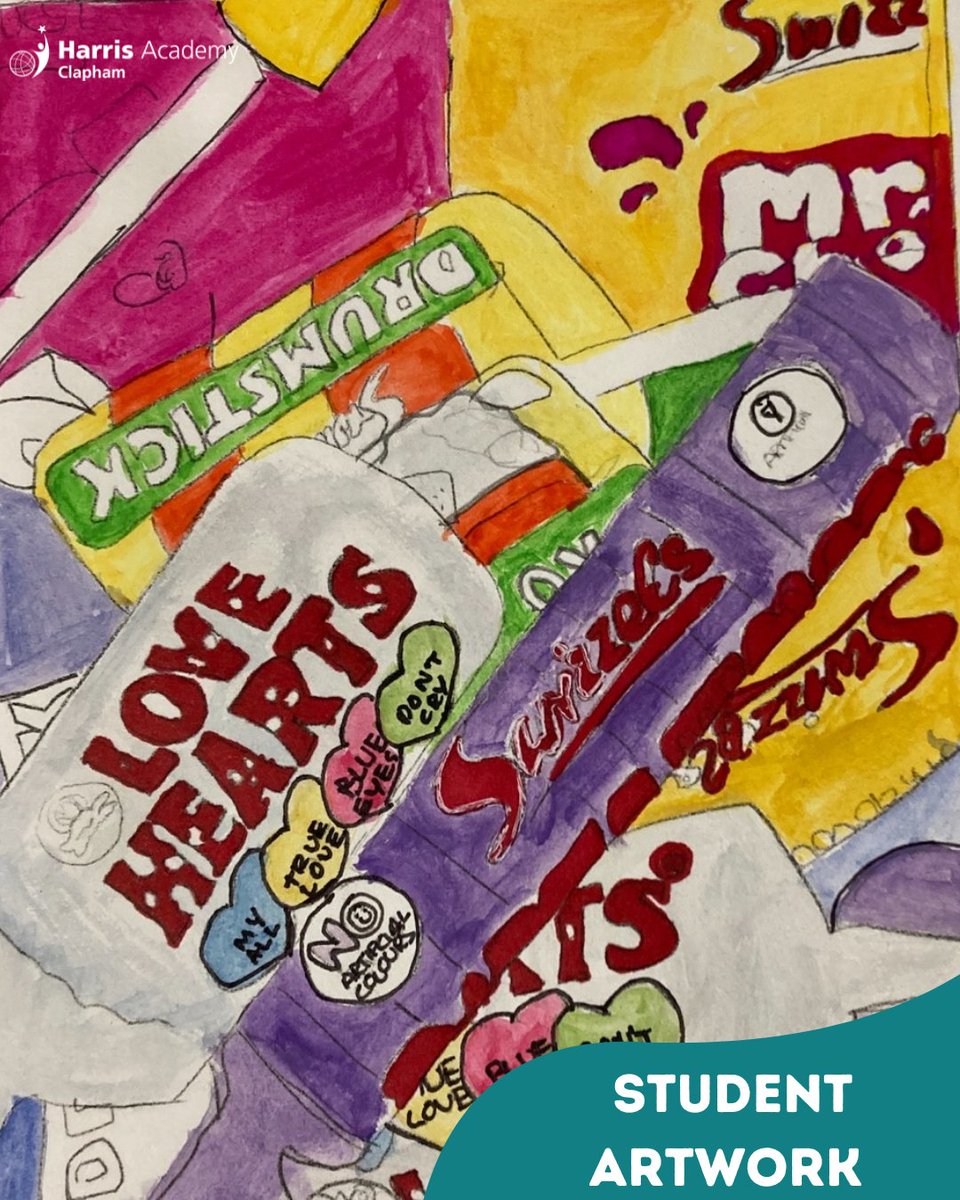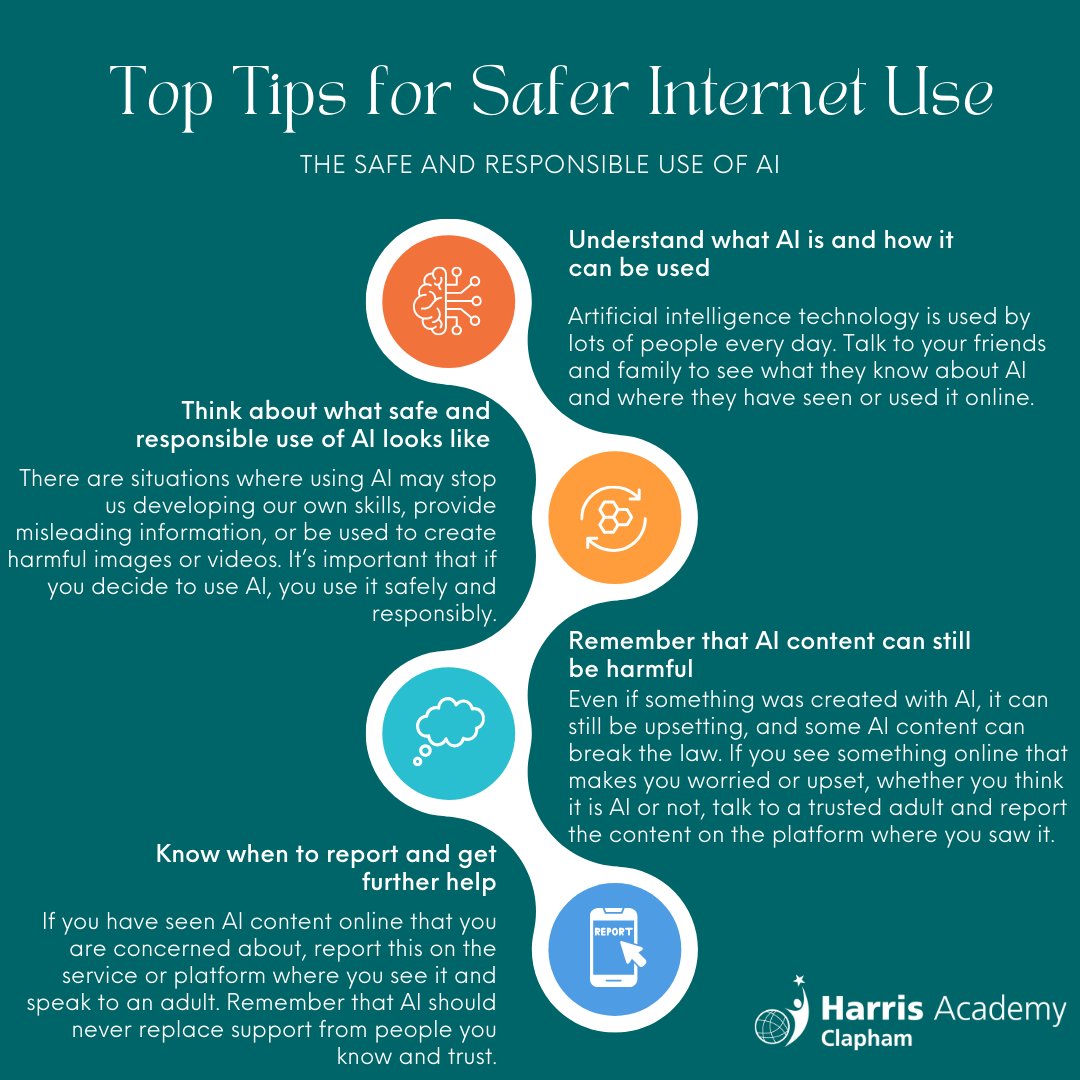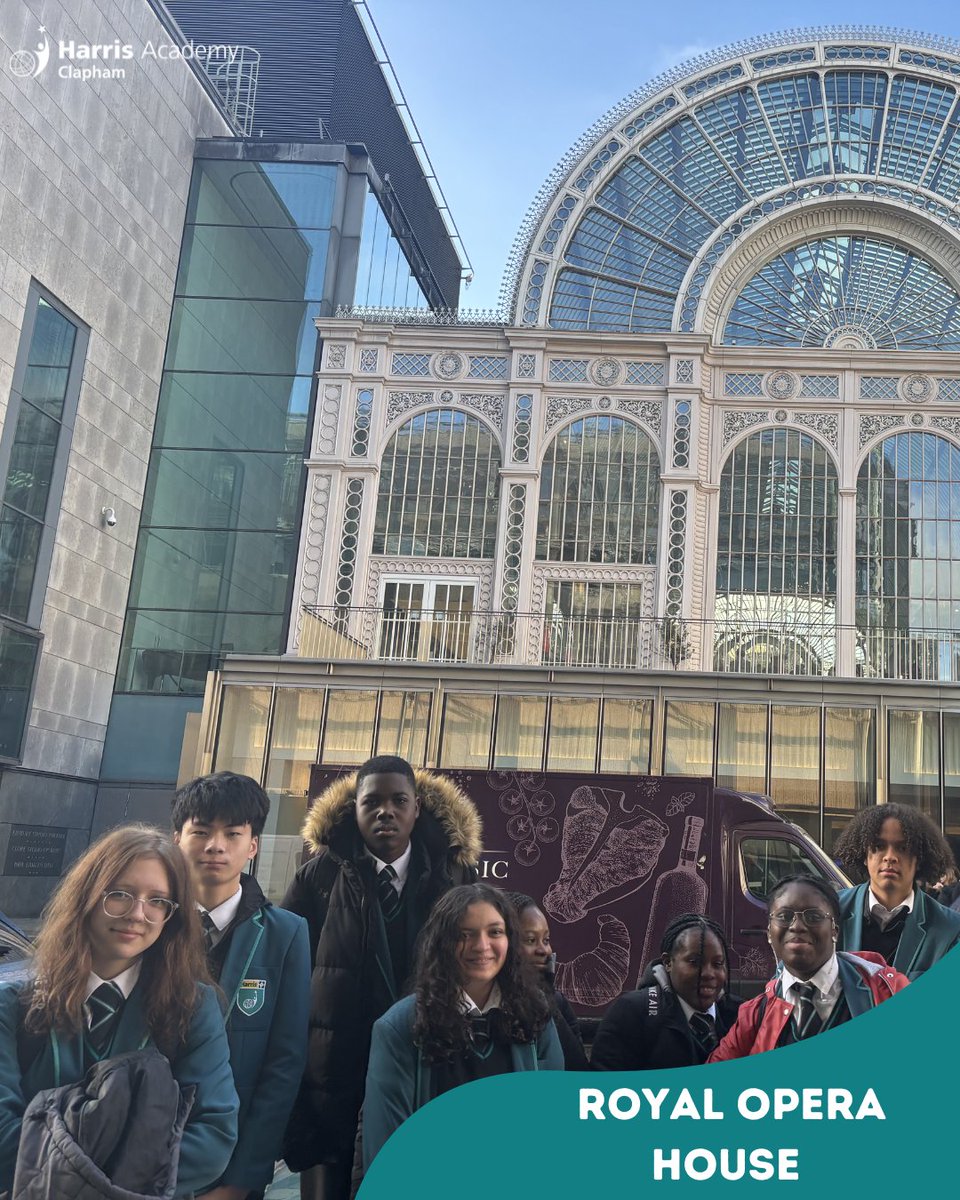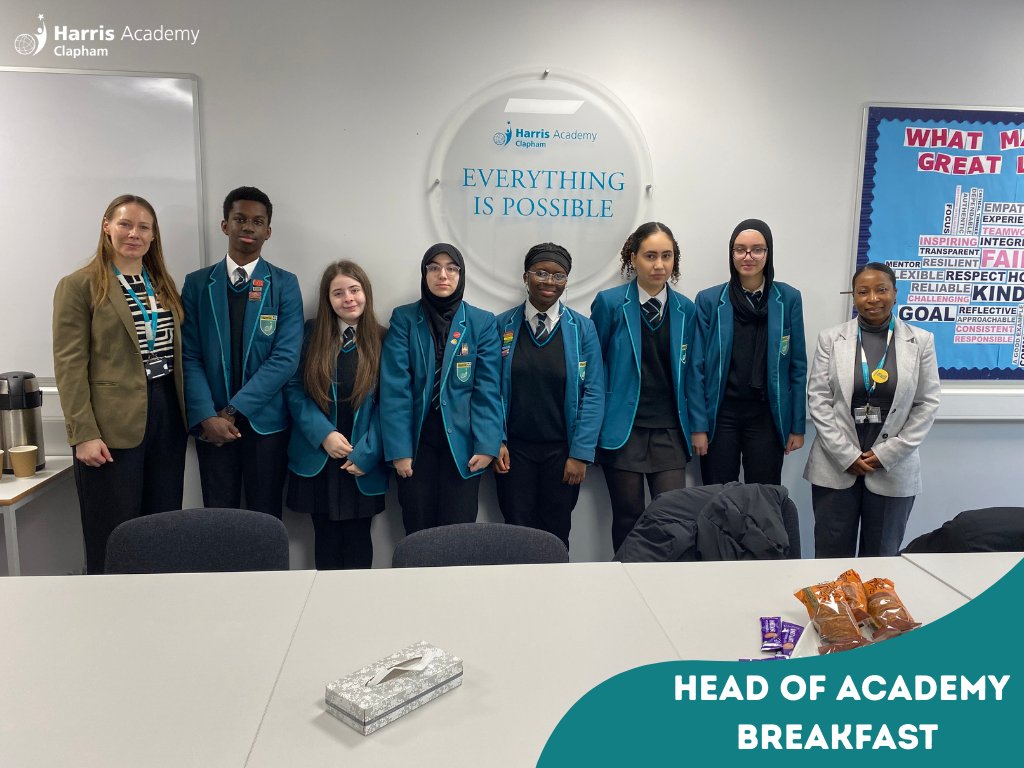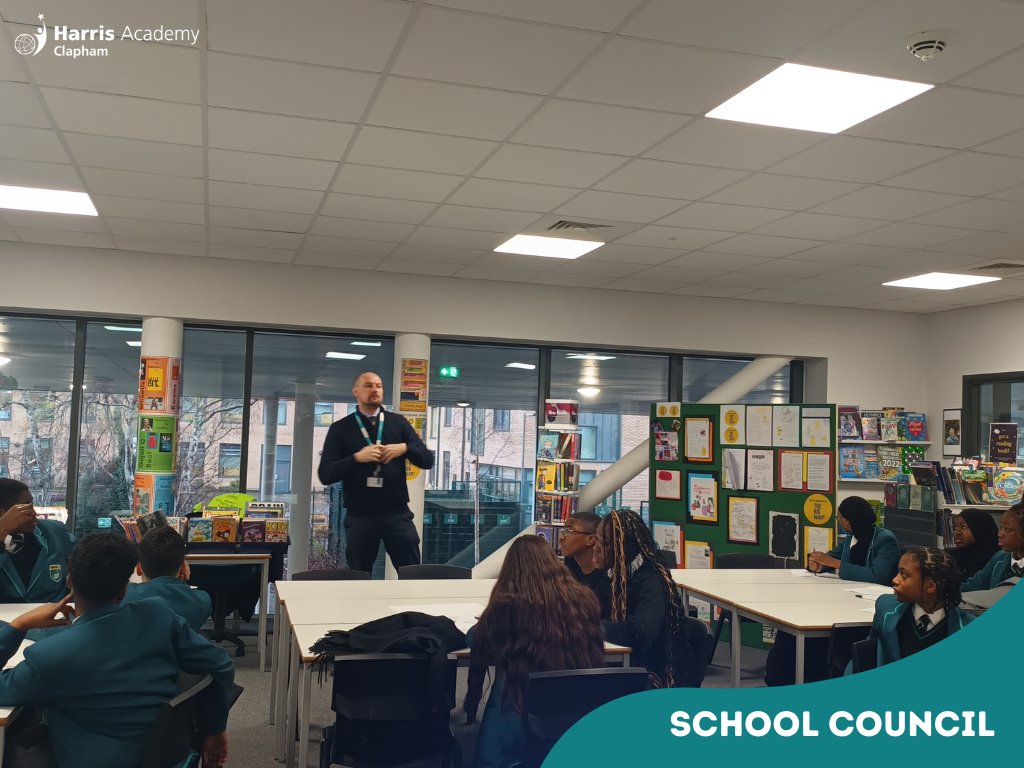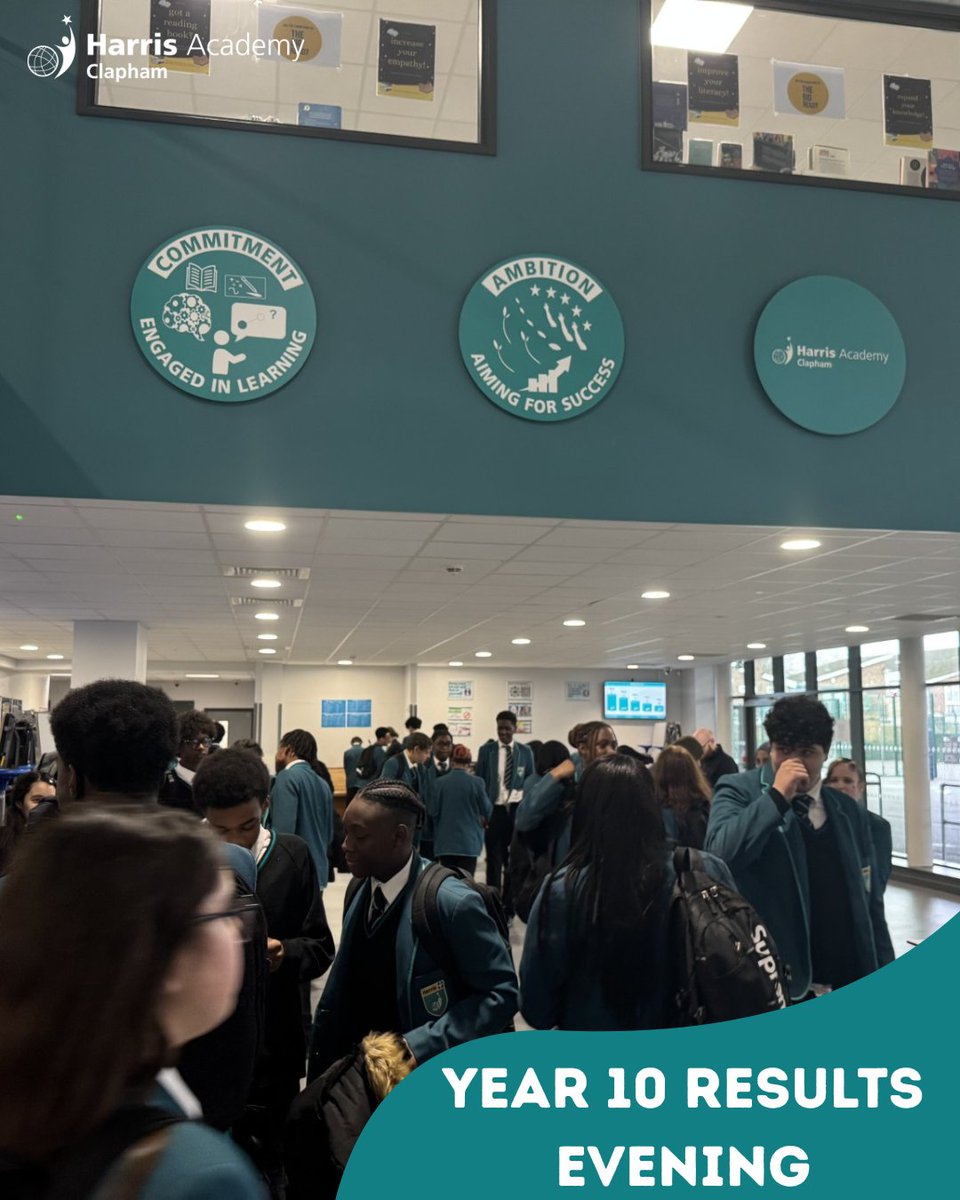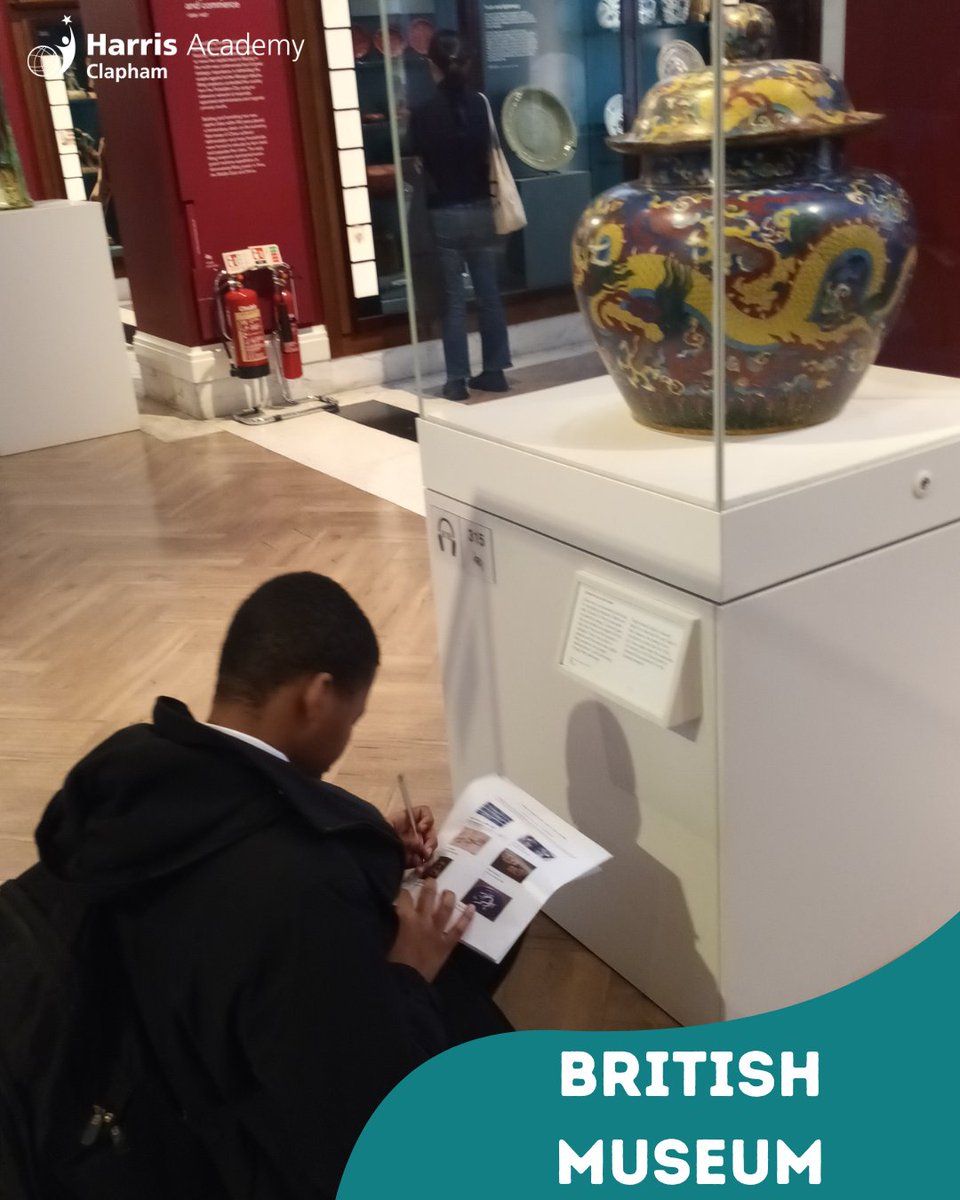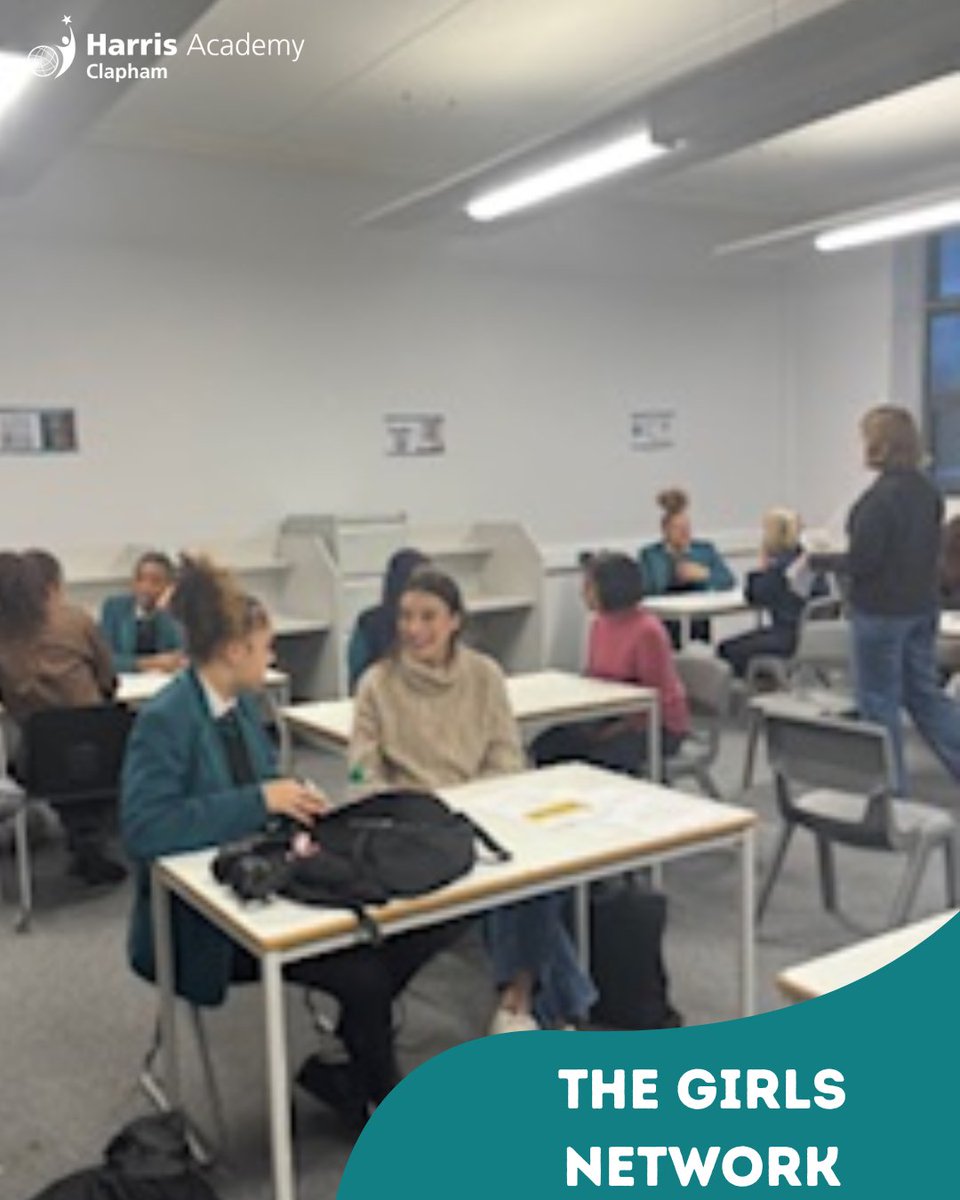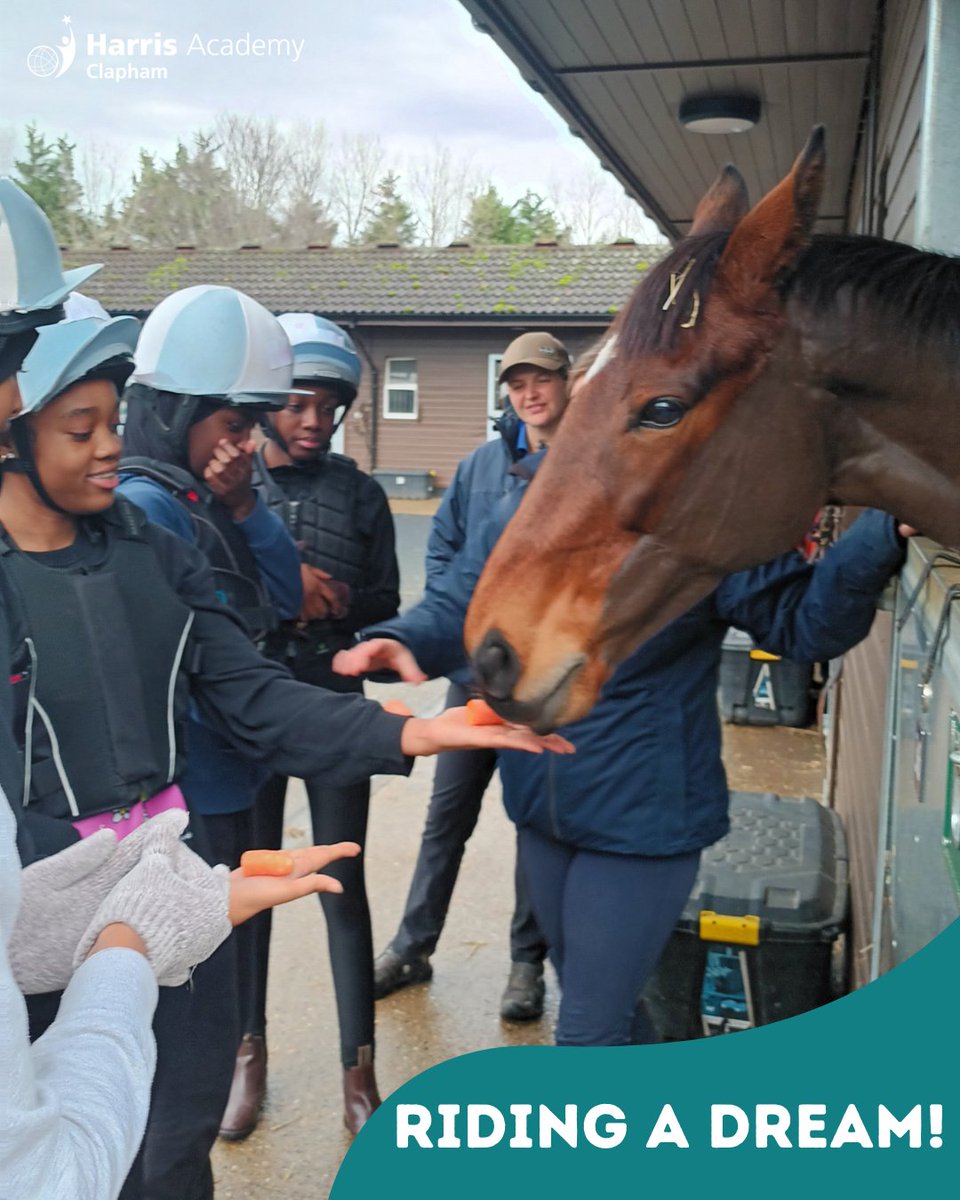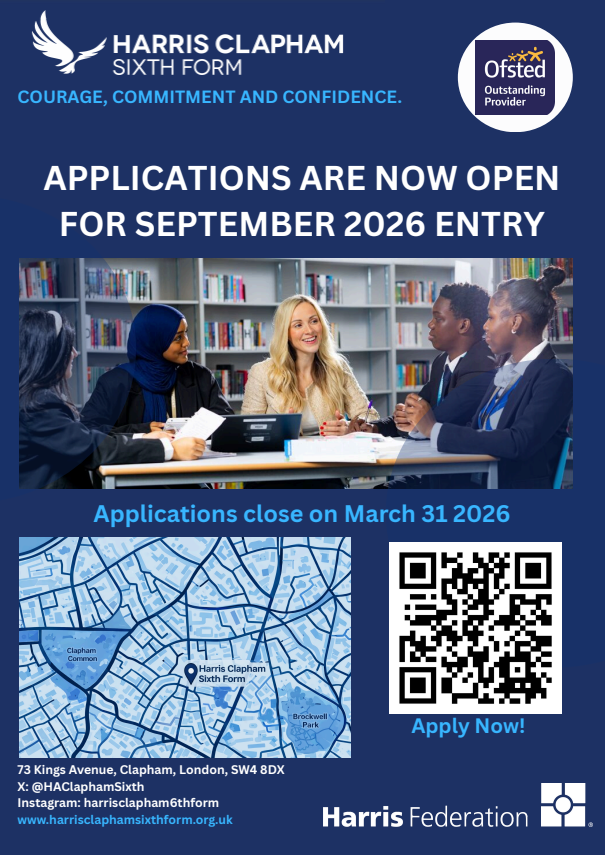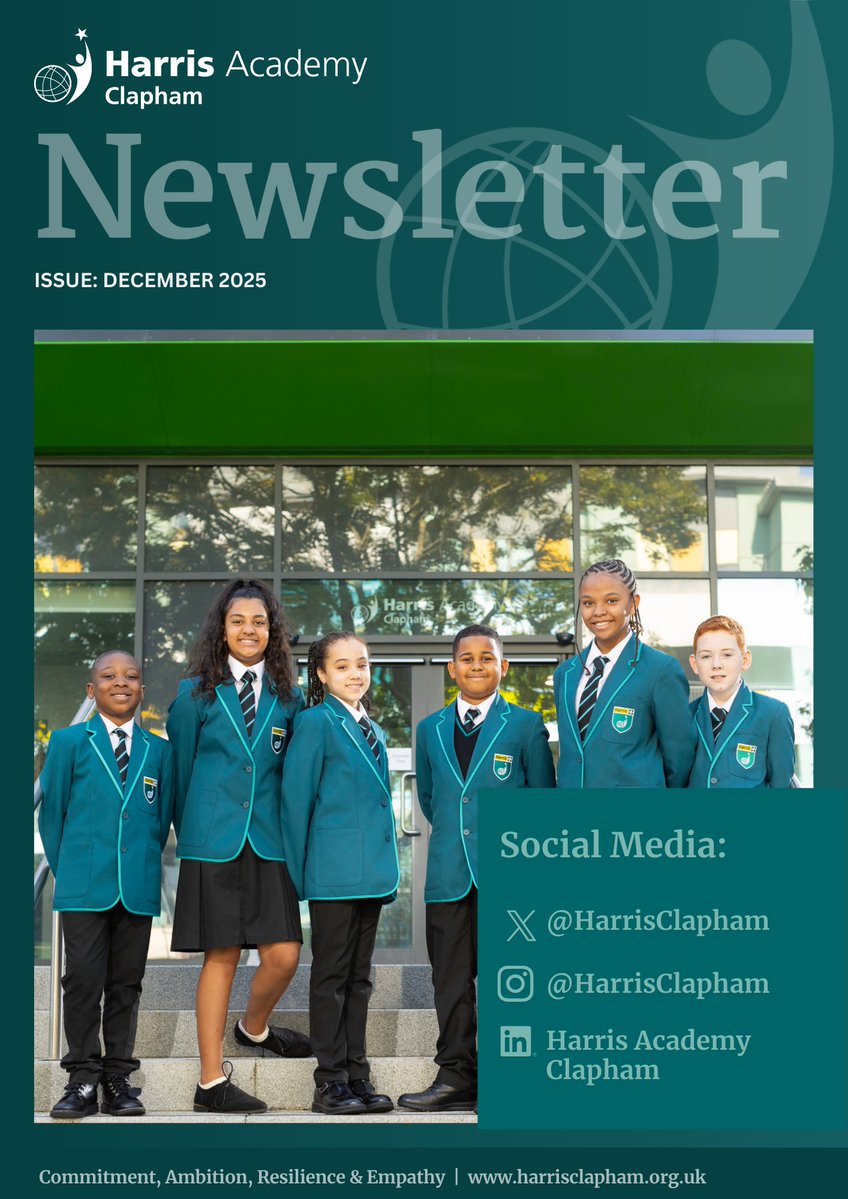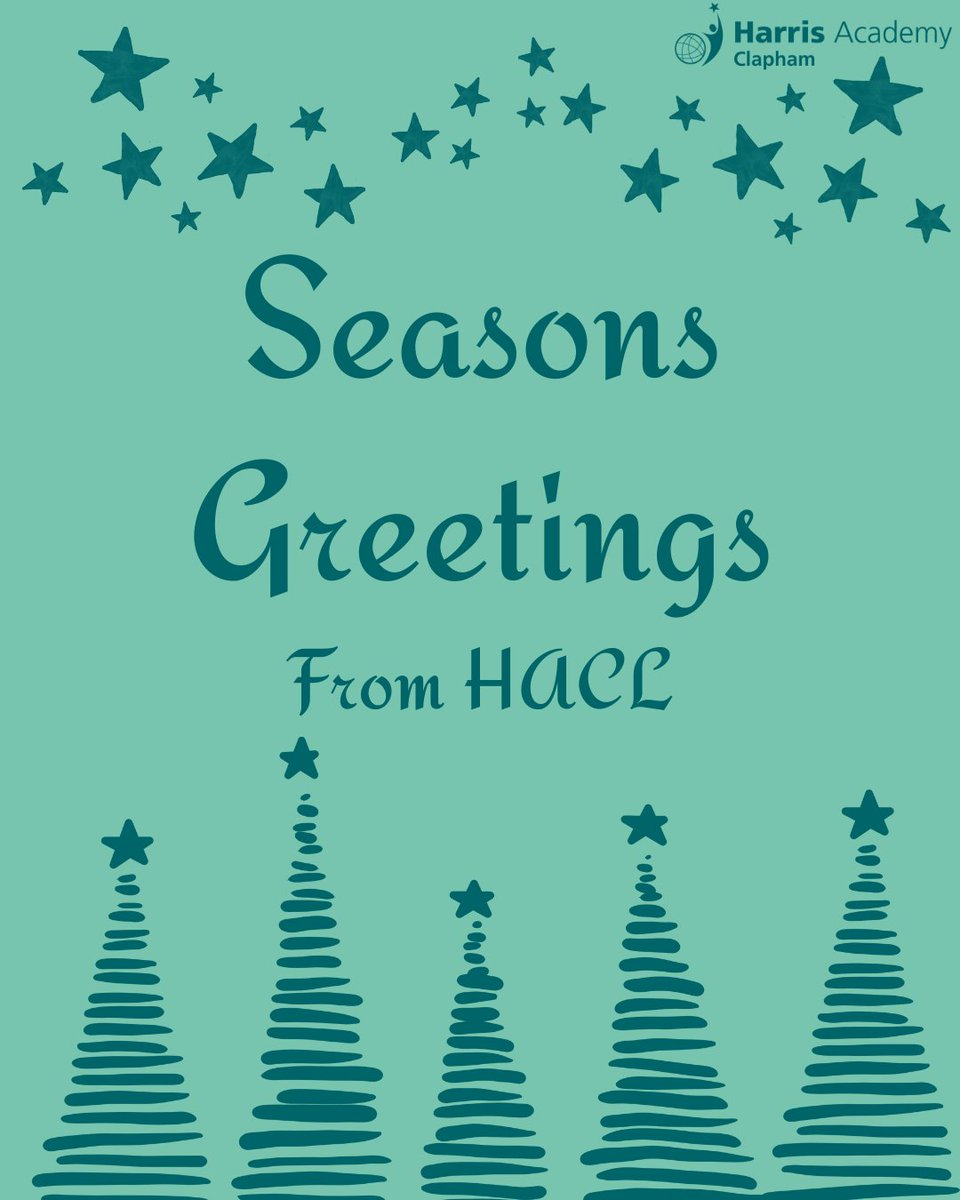Safeguarding
Safeguarding is the professional responsibility of every member of staff and every person involved in the Academy community.
We take this responsibility very seriously and we work hard to ensure that all children are safe and protected from any type of harm.
It is of utmost importance to us that our students feel safe and cared for so that they are confident to make the most of every opportunity we afford them to develop into the best version of themselves they can possibly be.
If you are concerned about a child who attends Harris Academy Clapham, this page tells you who to contact.
- To access our safeguarding policy, please see the link below
- To find out about our approach to e-safety, please see the document below
- To find out about how we prevent bullying please see our Prevention of Bullying Policy downloadable from our Student Welfare page.
Our Safeguarding Team
Noga Verber: Vice Principal and Designated Safeguarding Lead
Janine Thatcher: Deputy Designated Safeguarding Lead (non-teaching), KS4
Danielle Reiss: Deputy Designated Safeguarding Lead (non-teaching), KS3
David Astin: Executive Principal
Prevent Lead: Matt Holmes
How to report a concern
Use this form (click this link or scan the QR code below) to report a safeguarding or bullying concern about a student that attends Harris Academy Clapham. You can do this anonymously or leave your name. This form will alert a member of the safeguarding team (during working hours in term time).
If someone is in immediate danger or risk of harm always dial 999.
Where possible always speak to the child's tutor, HOY, pastoral manager or a designated safeguarding lead.

For students. If you are in the academy:
- Speak to your form tutor
- Speak to your pastoral manager
- Speak to any member of staff – they do not need to be your tutor or one of your teachers
- Speak to someone on the safeguarding team – there are posters up all around the academy, so it is easy to see who they are
- Put a slip in the box outside the School Counsellor’s room (Rm 2.38)
- Sometimes it can be difficult to approach an adult if something is bothering you. If it would help you, ask a friend to go with you.

Getting help outside of school

If you are not in the academy:
- Speak to a family member
- Ask the family member to make contact with the academy
Access support via the internet:
- youthaccess.org.uk has links to many different organisations who are there to help you: www.youthaccess.org.uk
- Kidscape particularly focuses on support with bullying concerns
- Talktofrank offers honest information about drugs
- Call Childline on 08001111
- Text P2B to 85258 to get free, confidential support in a crisis any time, day or night.
Remember: If your life, or someone else’s life, is in immediate danger, call 999.
Mental health and wellbeing - our commitment
At Harris Academy Clapham, we prioritise student mental health and wellbeing. We aim to create a safe, supportive environment where every child can thrive.
Our strategy
We use a whole-school approach combined with tiered support to meet the needs of all students, including those with higher levels of need such as SEN and PP.
Universal offer (for all students)
- Mental health education through the PD curriculum.
- Anti-stigma campaigns and wellbeing assemblies.
- Staff trained in Mental Health First Aid and emotional literacy.
- Weekly pastoral reviews to monitor attendance, behaviour, and wellbeing.
Targeted support (for students at risk)
- School Counsellor – for moderate anxiety, depression, or trauma.
- Music Therapy – for students who struggle with verbal expression or have experienced bereavement.
- Mentoring programmes – FBB and Strengthening Minds for confidence, social skills, and resilience.
- Small group interventions for emotional regulation and self-esteem.
Specialist support (for high-level needs)
- Referrals to CAMHS, Lambeth Wellness Centre, or GP for severe mental health concerns.
- Crisis response for self-harm or suicidal ideation, led by DSL/DDSL and safeguarding team.
How we help
- Early identification through attendance, behaviour, and wellbeing checks.
- Clear referral process for timely support.
- Collaboration with parents and carers at every stage.
In crisis
If a student is at immediate risk (e.g., self-harm or suicidal thoughts), we act quickly and involve safeguarding and external professionals.
For more information or support visit https://www.youngminds.org.uk or call ChildLine 0800 1111
111 (option 2) is a free, 24/7 contact number for the NHS mental health crisis response service (CRS).
- How to call: Call NHS 111 and select option 2
- Who can call: Anyone who is experiencing a mental health crisis, or someone who knows someone who is
- What happens: A trained mental health professional will assess the situation and provide the right support
Staying safe
There are many things you can do to keep yourself safe. The first is always, always talk to someone if you have any concerns or worries. At the academy all our staff are friendly and approachable – try talking to them and you will soon find this out!
Staying Safe Online
Keeping yourself safe online is a must. You will learn more about this during lessons, but we’ve also put together some resources for you to find out more.
- ThinkUKnow website for young people
- Childnet Hub for young people aged 11-18
- UK Safer Internet Centre resources for 11-19s
- Child Exploitation & Online Protection Centre (CEOP) Has someone acted inappropriately towards you online, or to a child or young person you know? It may be sexual chat, being asked to do something that makes you feel uncomfortable or someone being insistent on meeting up. You can find advice on the CEOP website and can also report any concerns to CEOP using the CEOP Report Button on the right, and at the foot of every page.
Remember, if you need immediate help call 999.
Your Digital Footprint
Everything you post online stays around for a long, long, long, long, long, long time. Before you post anything online THINK – Is it True? Is it Helpful? Is it Inspiring? Is it Necessary? Is it Kind?
If you post something unkind or cruel then will make someone else feel unsafe. Do not make posts or comments about other people on any social media.
Staying Safe while travelling
On your journey to and from school
- Make sure you know your address and home telephone number by heart, in case you get lost or have to navigate home from somewhere new.
- If you have a mobile phone, fully charge it before leaving the house, and make sure you have all your contact numbers saved.
- Follow the rules on road safety. Always look both ways before crossing the street, and never be on your phone while crossing a road.
- Never accept a lift from someone you don’t know or let a stranger into the house. Never give personal information away – in real life or online.
- If you feel unsafe or uncomfortable at any time, they call your mum or dad or a trusted adult
- If you ever feel like they’re in immediate danger, they should call the police straight away on 999.
If you are getting the bus then know the times the bus is due. On the bus, keep yourself out of danger – remember everything you were taught about keeping yourself safe at primary school. In short, trust your instincts. Avoid getting into arguments with adults you do not know, for example over a spare seat on the bus.
If you are cycling, know your route, wear a helmet and practise the journey! Remember to cycle safely – do not swerve across roads!
Other sources of support
If you need help, including with your emotional and mental wellbeing, then these organisations can help you. Never be afraid to seek help if you are feeling down, stressed or things are getting on top of you.
- Young Minds offers lots of help and advice for young people, including in relation to mental health. You can access their website: https://youngminds.org.uk/find-help/feelings-and-symptoms/problems-at-school/
- Childline – call or chat with advisors. The website can be accessed on https://www.childline.org.uk/get-support/contacting-childline/
- Childnet – secondary. Childnet has lots of advice on bullying, online safety and what they call your ‘digital wellbeing’ You can access Childnet from https://www.childnet.com/young-people/secondary
Remember that the academy has a counsellor and we also have our safer schools police officer that you can talk to. It is always best to talk to a trusted adult. We are here for you.
PRSHE and mental health
Alongside ensuring the safety of the students in our care and supporting them to reach their true academic potential, we are very aware of our role in supporting their mental health and well-being.
Our personal, relationships, sex and health education (PRSHE) programme is designed to ensure that our students receive the appropriate provision to improve their knowledge and understanding of relationships, sex and relationships and healthy living. Young people face complex pressures and dilemmas in developing mature relationships and need to face such tasks confident in their factual knowledge, as well as being given the opportunity to discuss and shape their feelings and attitudes. Alongside this, it is important for them to know how diet and exercise choices impact on our lifestyle and general well-being.
To embrace the challenges of creating a happy and successful adult life, students need knowledge that will enable them to make informed decisions about their wellbeing, health and relationships and to build their belief in their own abilities. Our students can also put this knowledge into practice as they develop the capacity to make sound decisions when facing risks, challenges and complex contexts. Everyone faces difficult situations in their lives. The content we cover will support our students to develop resilience, to know how and when to ask for help, and to know where to access support. This helps with their self-knowledge, self-esteem and self-confidence.
Alongside this extensive programme, we have also invested in a number of other routes and services to support our students:
- Mr Holmes is our academy mental health champion and part of his role is to ensure that we are working actively to ensure the mental health and well-being of our academy community
- We have a trained counsellor, Aida Tarzi in the Academy Monday-Thursday. Students can be referred by parent/carers, members of staff or self refer by completing a slip and putting it in the box outside the counsellor’s room or the box in the library.
- We have a multi-disciplinary psychotherapist on site 2 days a week – Rolan Garcia – Thursday and Fridays
- We have a music therapist on site 2 days a week, for 121, small group session and drop-ins.
- We have a Life Coach who offers 121 sessions with students
- We provide support via Football Beyond Borders for students in Y8 and Y9
- We offer specialist bereavement counselling, provided by Grief Encounter, for children who have lost a close family member.
As an Academy community we work tirelessly to embed our culture that cares.
For parents and carers
Lambeth Early Help (lambeth.gov.uk). Early Help services work with children, young people and their families up to the age of 19, or 25 where the child or young person has a disability. The aim is for families who need additional support to get help as early as possible, so they can tackle their problems and improve their lives. Tel: 0207 926 5555 (24 hours), email: helpandprotection@lambeth.gov.uk
Government guidance (www.gov.uk)
The link below offers guidance on a range of issues including:
- child missing from home or care
- child sexual exploitation (CSE)
- bullying including cyber bullying
- domestic violence
- drugs
- female genital mutilation (FGM)
- forced marriage
- gangs and youth violence
- gender-based violence/violence against women and girls (VAWG)
- mental health
- preventing radicalisation
- sexting
- teenage relationship abuse
- trafficking
Online safety
The Thinkuknow website is created by the police for parents of children at secondary school. It contains useful information about:
- what children are doing online
- how to talk to children about what they are doing online
- what risks your child might face
- what tools are there to help them stay safe.
They have also produced a Parent’s Guide to E-Safety and also the following booklets to provide parents/carers with helpful information on how to explore and monitor their children’s apps.
Radicalisation
If you are worried that someone is being radicalised into terrorism, call the national police Prevent line on 0800 011 3764 to get advice or share your concern. Alternatively, contact your local authority for help. This will ensure that the person gets necessary interventions and support available to them if they are assessed to be at risk of radicalisation.
Sources of help and advice
There are multiple sources of help and advice available to parents and students, in addition to those offered by the academy. The NSPCC is a good source of information for parents and students alike.
If the child is not a student at this academy
If you have a concern about a child who is not at this academy, you have a responsibility to that child to tell someone.
- If you believe a child to be in imminent danger, you can call The Police on 101 or 999.
- You can call MASH – Lambeth Multi Agency Safeguarding Hub. MASH is the coordinating body for the main local services for child protection. Call Children’s Services please call 0207 926 3100.
- If your concern is about online child sexual exploitation you can call CEOP. Search for CEOP online.
Visitors to the academy
Visitors are welcome to Harris Academy Clapham. It is important for us, as part of a well-rounded education, that our students engage positively with their peers, our staff and any visitors to the academy. Visitors offer our students a window into the world outside of the academy and also an opportunity for them to develop their skills in conduct and communication. It is our expectation that all visitors will conduct themselves as true role models for our students.
We want our students to develop outstanding habits of behaviour which will prepare them for life after their academic careers.
Please help us to reinforce these habits rather than undermine or break them by acting as a positive influence; as a role model for outstanding behaviour. In particular, we would ask that you please:
- dress professionally for your visit
- act with kindness and compassion to others
- treat everyone with respect
- do not eat or drink in corridors or classrooms
- do not use your mobile phone in front of students
Should you have any concern about a student during your visit to the academy, please contact reception and ask to speak to a member of the safeguarding team.
